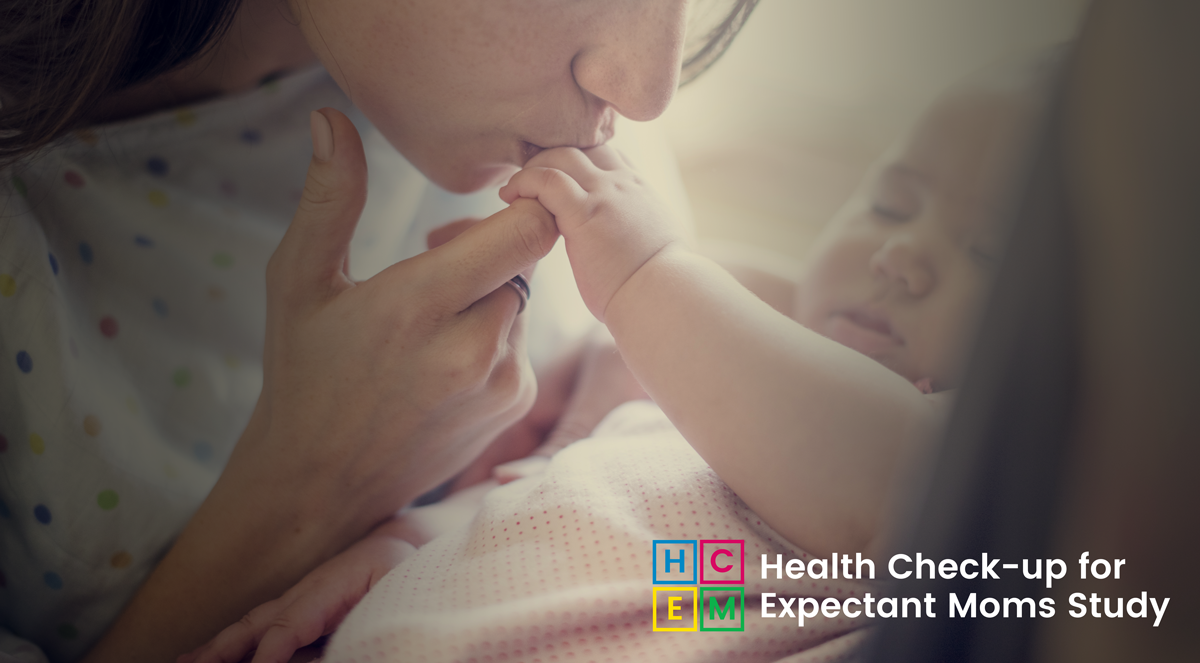
Golfo K. Tzilos Wernette, Ph.D., assistant professor of Family Medicine and Psychiatry, has been awarded a five-year grant from the Eunice Kennedy Shriver National Institute of Child Health and Human Development and the National Institutes of Health to deploy Health Check-up for Expectant Moms (HCEM), a brief smartphone- and computer-based intervention aimed at reducing sexually transmitted infections and substance use during pregnancy.
Tzilos Wernette will be the project’s primary director and will conduct the study with colleagues at Brown University in Providence, Rhode Island. The research will build on Tzilos Wernette’s research on delivering health promotion programs to vulnerable populations through technology. She has published over 40 papers on substance use and behavioral health interventions with at-risk populations. A preliminary randomized controlled trial testing the HCEM intervention found the intervention to be acceptable and effective in reducing rates of alcohol and drug use during pregnancy. The preliminary findings were published in the Journal of Women's Health and the Journal of Pediatrics and Adolescent Gynecology.
READ MORE: This low-cost computer program may reduce rates of STIs among pregnant women
Recent studies have shown the combination of sexually transmitted infection (STI) and alcohol and drug use is on the rise among young pregnant women in the United States. Having or contracting an STI during pregnancy can have multiple impacts on a newborn, including blindness, blood and other types of infections, organ damage, and even death. Alcohol use is responsible for premature births and brain and other organ damage in the fetus, miscarriages, and stillbirths, while the use of marijuana during pregnancy can result in a child being born with a low birth weight that can result in learning disabilities and developmental delays.
An opportunity for intervention
Physicians view pregnancy as a window of opportunity in which they can intervene to help a young woman seek healthier alternatives in an effort to mitigate negative birth outcomes. Unfortunately there are very few data-supported interventions that target the risks of STIs and drug/alcohol use, and virtually none are tailored to a pregnant woman’s unique concerns and issues. This study will test an innovative health education program that is delivered by smartphone and computer. The education program is designed to help young pregnant women make healthier decisions about drug and alcohol use and abuse and avoid risky sex.
“STIs are at a record high in the United States, and STI risk is an increasingly critical health problem for pregnant women who can pass these infections on to their babies. Adverse effects of prenatal STIs can include low birth weight, miscarriage and stillbirth,” notes Tzilos Wernette.
The five-year R01 study will build upon work from Tzilos Wernette and colleagues at the University of Michigan that tested a pilot version of the HCEM computer program, providing brief informational counseling to high-risk pregnant women. The new study will delve deeper into the same line of study by creating a two-group, randomized controlled trial that involves a racially diverse sample of 250 pregnant women who are at risk for STIs and alcohol/drug use. The women will be assigned to a computer-delivered, single-session brief intervention plus two booster sessions consistent with motivational interviewing, or a computer-delivered control condition.
The study has two specific aims:
- Test the hypothesis that the computer program, called the Health Check-up for Expectant Moms (HCEM), will reduce unprotected sexual occasions, alcohol use and drug use among at-risk pregnant women during pregnancy at 2 and 6-months follow up.
- Test the hypothesis that HCEM, compared to control, will reduce STIs and alcohol/drug use at 6-weeks postpartum.
Tzilos Wernette and her colleagues believe that the Health Checkup for Expectant Moms (HCEM) intervention will have the potential to foster behavior change during this critical period. The team hopes the results of this research will help inform the development of cost-effective, high-reaching and widespread interventions that will provide benefits for mother and infant that will extend into the postpartum period.
Tzilos Wernette is a member of the University of Michigan Addiction Center as well as a member of the Institute for Health Policy and Innovation at the University of Michigan.
Project Title: Technology-based Intervention For Reducing Sexually Transmitted Infections And Substance Use During Pregnancy (NIH link)
Funded from: the Eunice Kennedy Shriver National Institute of Child Health and Human Development and the National Institutes of Health
Total funding: $656,528
Project start and end dates: August 28, 2018 - May 31, 2023
Browse the latest reproductive and women's health research from the department of family medicine.



